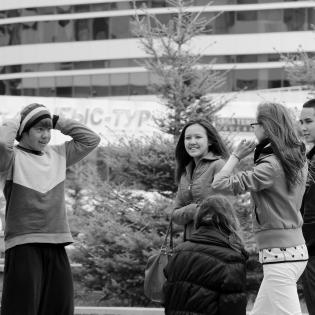Fair Responses to Unfair Acts
In response to the story of Rosa Parks and the Montgomery Bus Boycott, learners reflect on the barriers and challenges to addressing an unfair situation. Given a list of ways to respond to unfair situations, they match them to a list of unfair situations.
The learner will:
- identify the difficult decisions involved in taking action against unfairness.
- apply ways to respond to a list of potential unfair situations.
learner copies of the handout below Ways to Respond to Unfairness
Instructions
Anticipatory Set:
Review the definition of fairness they came up with in Lesson One. Discuss whether it is a good definition. Adjust the definition, if desired.
Tell the story of Rosa Parks and the Montgomery Bus Boycott and discuss with the questions below.
Before 1955, there had been an unfair rule that African Americans had to sit in the back of the bus and give up their seat in the front if a white passenger needed a seat. Many black passengers followed that unfair rule for a long time before Rosa Parks refused to give up her seat.
Her action was the first step in the bus boycott. Because of her action, the African American community in Montgomery, Alabama, all agreed not to ride the bus until the rule changed. Their action was difficult for them because they had to find other ways to get around town, but it also cost the bus company money in lost sales.
Finally, the Supreme Court declared that the segregation laws of the Montgomery public transportation system were unconstitutional. One year after Rosa Parks refused to give up her seat, the law changed. This was a significant victory for the Civil Rights Movement.
Questions:
- What was the catalyst for the African American community and others to take action at this time?
- What action did they take?
- Do you think it was difficult for Rosa Parks to take action against what she knew was unfair? Why or why not?
- Do you think it was difficult for the African American community to stick with the boycott for a year? Why or why not? Why do you think they didn't give in?"
Read through together the handout Ways to Respond to Unfairness. Then, on their own or in small groups, they match ways of responding to the list of unfair situations (answers may vary). Facilitate a whole class discussion of the responses.
Discuss the possible ways to respond listed at the top of the handout. Which ways feel effective in different situations? In what situations do they feel they could have the courage to take these steps?
